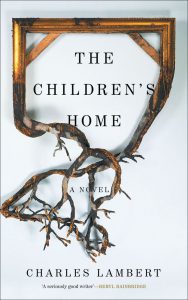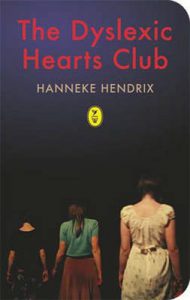 July is Spanish Literature Month, hosted by Richard of Caravana de Recuerdos and Stu of Winstonsdad’s Blog. I’ve never joined in properly before; but I have quite a few unread Spanish-language books on the shelves (and the odd Catalan one), so now is the time. My first book for the month plugs a gap in my recent reading history, and takes me to a novelist’s beginnings…
July is Spanish Literature Month, hosted by Richard of Caravana de Recuerdos and Stu of Winstonsdad’s Blog. I’ve never joined in properly before; but I have quite a few unread Spanish-language books on the shelves (and the odd Catalan one), so now is the time. My first book for the month plugs a gap in my recent reading history, and takes me to a novelist’s beginnings…
When I started this blog in 2009, Roberto Bolaño was one of the writers whose names I kept coming across – but I never read him. Partly this was because, at that time I wasn’t yet making a point of reading translations; and partly because the book I heard most about – 2666 – was just too long for me to want to take a punt. My reading took me off in other directions, and Bolaño became another author whose work I’d glimpse occasionally on bookshop shelves and then wonder about. But I did acquire a few volumes over the years, ready for when the time was right. When I came across my copy of The Skating Rink the other week, it seemed as good a time as any.
I didn’t even realise when I started that this was Bolaño’s first published novel. Since I found that out, it has become unusually difficult not to let it colour my response. I’m conscious that what I’ve read is only the start of something, and that I don’t know how Bolaño’s career developed. This novel feels to me like a stepping stone rather than an end in itself; but I don’t have the context to know what is significant in terms of Bolaño’s work as a whole.
The Skating Rink is set in a Costa Brava town identified only as Z, and has three first-person narrators. One is Enric Rosquelles, a civil servant who becomes infatuated with a champion ice skater named Nuria Martí, and siphons off public funds to build her a secret rink in an old mansion at the edge of town. The second narrator is Remo Morán, a-writer-turned-businessman in an occasional relationship with Nuria. Finally, there’s Gaspar Heredia, a poet and old associate of Morán’s who takes a job at his campsite and becomes acquainted with two vagrants, a knife-carrying young woman and an ageing opera singer, who have their own interest in the palace. The three narrators rotate in strict order, each testimony presented as a single, dense paragraph:
Only once had I ever heard anyone sigh like that: a hard, harsh sigh, alive in every hair, and the mere memory of it made me feel ill. I squatted between the cases until all I could hear was the generator and my own uneven breathing. I chose not to move for a long time. When I noticed that one of my legs was becoming seriously numb, I began the retreat; it was all I could do not to panic and go running down the mansion’s twisting corridors. Surprisingly I found my way out without the slightest difficulty. The front door was locked. I jumped out a window. Once in the garden, I didn’t even try to open the iron gate; without a second thought I scaled the wall as if my life depended on it…
(Translated from the Spanish by Chris Andrews.)
The effect of this is that we perceive events building layer by layer, sometimes digressing, and often without a clear sense of where things might be heading. We do know from early on in the novel that there’s going to be a murder, but not whose. Actually The Skating Rink functions almost like an inverted murder mystery: the crime doesn’t come until close to novel’s end, and it’s not so much solved as admitted. The tension ramps up as we reach the fateful moment; but there isn’t the conventional release of finding out ‘what happened’, more a kind of resigned understanding. Solving the murder might explain something of what we’ve read, but it doesn’t fundamentally change it. The ending of The Skating Rink is less a victory for the reader than a truce.
Based on this experience, I think I would like to read more Bolaño, and it could be that one of the higher-profile books is the way to go after all. Maybe this is one literary career where it helps to know the end point before you look backwards.
Book details (Foyles affiliate link)
The Skating Rink (1993) by Roberto Bolaño, tr. Chris Andrews (2009), Picador paperback
Like this:
Like Loading...









Recent Comments